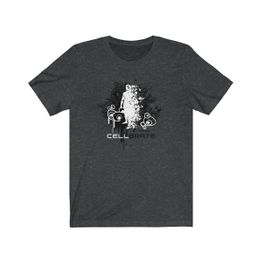New Studies Stress That Plastics are Harming Health
Plastics are made from fossil fuels, and plastic production is a major contributor to climate change. Plastic is a tough, reliable material that has been used in an almost endless variety of things, and once disposed, it breaks down into smaller bits called microplastics and nanoplastics, which can make their way into everything, including the human body.
New research has confirmed previous work that has shown that people are frequently exposed to plastics that are unregulated, and often untested to determine their impact on human health. People and animals inhale and ingest plastics, and children are even exposed before they are born because nanoplastics make their way into the placenta. They can also be delivered through breast milk.
A new database has been created to track the impact of plastic. The researchers that created it relied on over 3,500 reports that examined the effects of plastics on humans, and date back to the 1960s. The investigators started with that timepoint because it was when plastic production and use increased significantly worldwide. The new tool is called the Plastic Health Map.
The report warns that the health effects of about 30 percent of the roughly 1,500 chemicals used in plastic products have not been studied. There has also been inadequate testing of the substitute chemicals that have been created to supplant others that are now restricted, such as BPA or PFAS. There is also a major information gap when it comes to low income countries where people may often to heavily exposed to plastic or plastic waste. The findings have been reported in Environment International. The authors stressed that chemicals have to be adequately tested before use, and a major paradigm shift is needed in chemical regulation.
Another study reported in Environment International has shown that plastic particles can disrupt gut health and immunity in a mouse model. Mice were exposed to nanoplastics for 28 days, which were delivered into the body through a tiny tube. These particles accumulated in the mouse intestines, and the composition of the gut microbiomes of these mice was severely disrupted.
The intestinal epithelium, a protective lining in the gut, was also harmed. It become more permeable, leading to tissue damage and inflammation.
The researchers determined that the health impacts depended on the amount of exposure and the sizes of the plastic particles. They concluded that these particles could pose a major threat to human health.
Plastics can also significantly affect microbes in soil, according to a new study published in Eco-Environment & Health. This research, like others that have shown that microplastics can act as vectors for antibiotic resistance genes, demonstrated that microplastics can promote the distribution of antibiotic resistance genes in soil.
Nanoplastics were found to have a more significant impact than larger sized plastic pieces. These nanoplastics altered the composition of the microbiomes of soil, and enhanced resistance gene spread. The researchers noted that this study has stressed that we need better strategies to deal with plastic waste, and immediately.
Sources: Goodes et al Environment International 2023, Zhang et al Environment International 2023, Eco-Environment & Health
-
MAY 07, 2024Is It Anti-RNP or Anti-Sm/RNP?
-
MAY 08, 2024Expand your Multiomic Capabilities with RNAscope™
- See More
-
APR 30, 2024Immuno-Oncology Virtual Event Series 2024
-
MAY 07, 20243rd International Biosecurity Virtual Symposium
-
MAY 23, 2024For the Love of Digital PCR 2024
- See More


















































